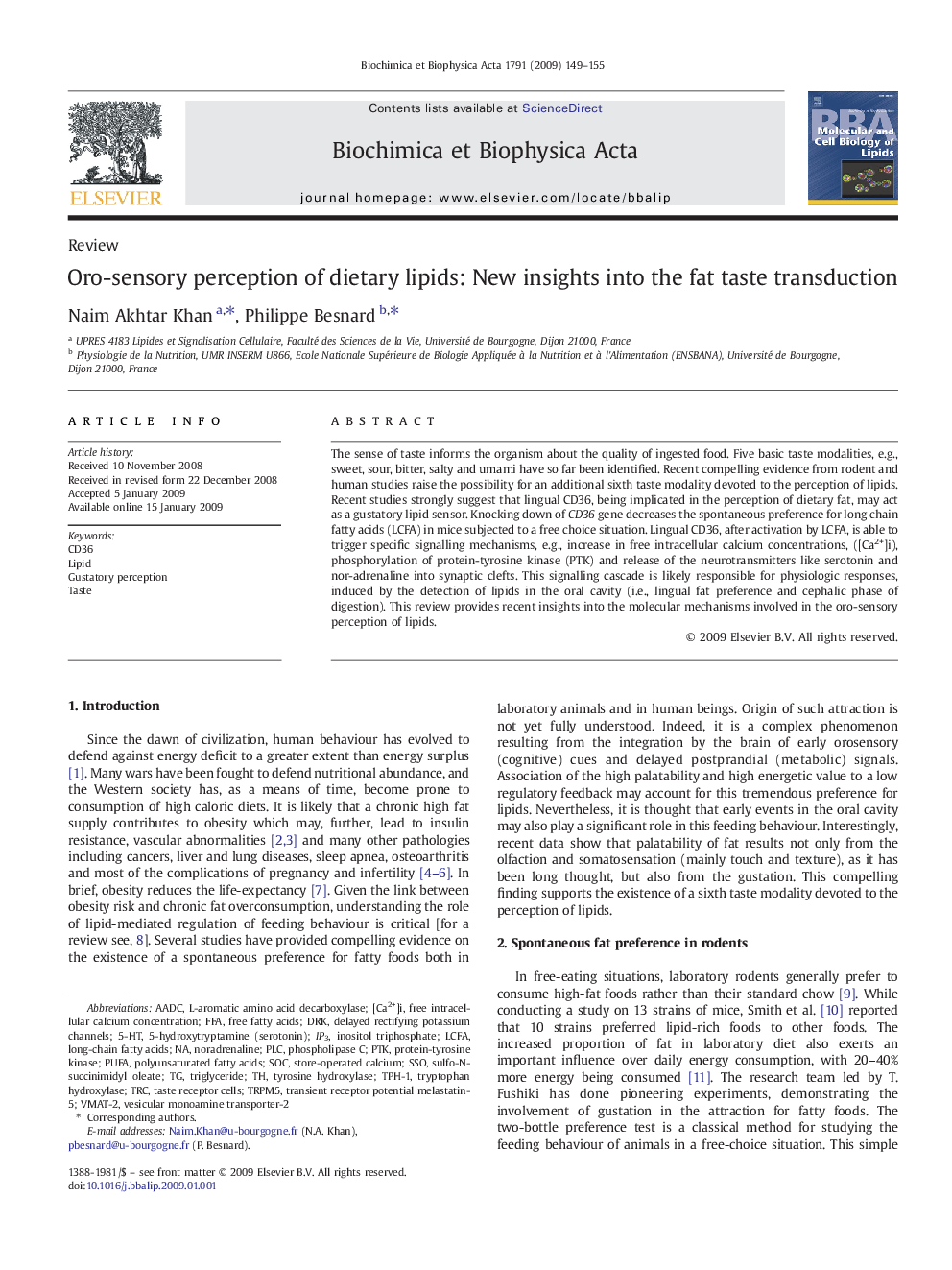| Article ID | Journal | Published Year | Pages | File Type |
|---|---|---|---|---|
| 1949856 | Biochimica et Biophysica Acta (BBA) - Molecular and Cell Biology of Lipids | 2009 | 7 Pages |
The sense of taste informs the organism about the quality of ingested food. Five basic taste modalities, e.g., sweet, sour, bitter, salty and umami have so far been identified. Recent compelling evidence from rodent and human studies raise the possibility for an additional sixth taste modality devoted to the perception of lipids. Recent studies strongly suggest that lingual CD36, being implicated in the perception of dietary fat, may act as a gustatory lipid sensor. Knocking down of CD36 gene decreases the spontaneous preference for long chain fatty acids (LCFA) in mice subjected to a free choice situation. Lingual CD36, after activation by LCFA, is able to trigger specific signalling mechanisms, e.g., increase in free intracellular calcium concentrations, ([Ca2+]i), phosphorylation of protein-tyrosine kinase (PTK) and release of the neurotransmitters like serotonin and nor-adrenaline into synaptic clefts. This signalling cascade is likely responsible for physiologic responses, induced by the detection of lipids in the oral cavity (i.e., lingual fat preference and cephalic phase of digestion). This review provides recent insights into the molecular mechanisms involved in the oro-sensory perception of lipids.
